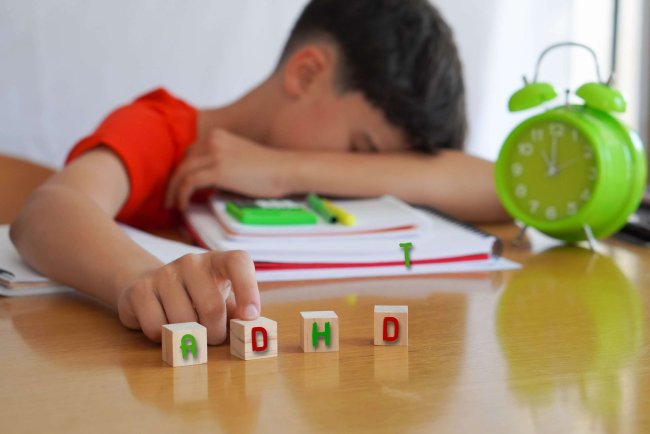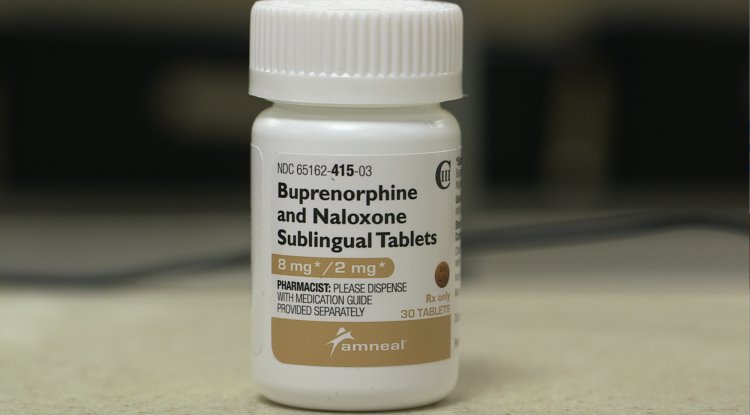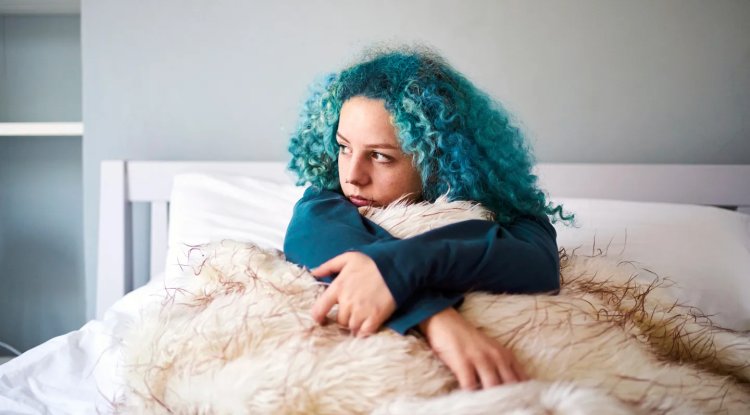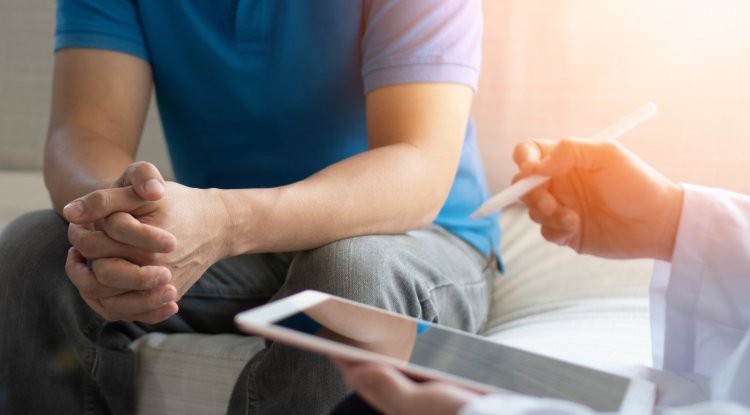Technology and Mental Health Apps: A Comprehensive Guide
Discover the intersection of technology and mental health apps in this detailed guide. Explore the benefits, challenges, and the latest innovations in the field. Learn how these apps are revolutionizing mental health care.
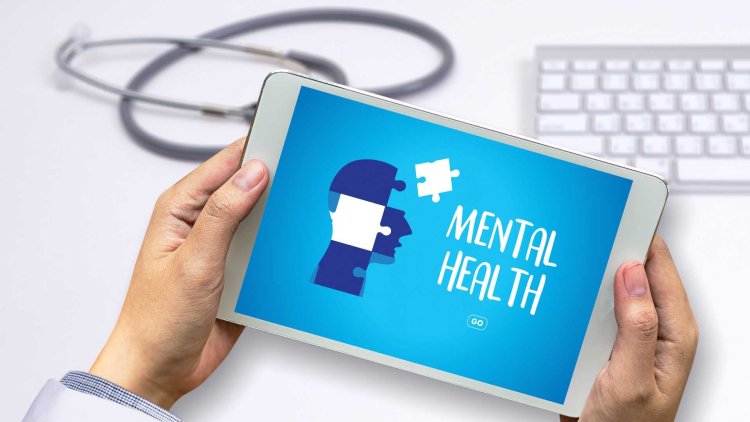
Introduction
Mental health issues have become increasingly common worldwide in recent years. While we may not fully understand all the contributing factors, modern technology and its impacts on people's lives and behaviors is surely playing a role. However, technology can also be part of the solution. With the rise of smartphone apps and digital mental health tools, more and more people are able to access support and resources to help manage their mental wellbeing.
In this blog post, I wanted to explore how technology and mental health apps specifically are intersecting and changing the landscape of mental healthcare. My goal is to provide a comprehensive yet easy to understand overview of the current state of mental health apps - what types exist, how they work, what benefits and limitations they may have, and examples of popular apps in different categories. I'll also touch on some of the broader privacy, ethical, and regulatory issues surrounding this emerging area.
Overall, while technology can exacerbate mental health problems, I believe it also has tremendous potential to help more people around the world access mental healthcare services they might otherwise not be able to receive. Mental health apps represent a new paradigm that promises more opportunities for prevention, early intervention, ongoing self-management support, and in some cases as a complement to traditional therapy or medication. With rigorous research and guidelines, digital tools have the power to transform global mental health for the better.
What are Mental Health Apps?
Let's start with a basic definition - mental health apps are software applications designed to be used on a mobile device such as a smartphone or tablet for the purpose of supporting mental wellbeing and emotional health. They can address conditions like depression, anxiety, stress, insomnia, and more.
Generally speaking, mental health apps fall into a few major categories based on their intended function:
- Symptom Trackers - Help users monitor their mood, sleep, triggers, medications over time to better understand patterns and share data with healthcare providers.
- CBT or ACT Tools - Provide techniques and exercises based on evidence-based therapies like cognitive behavioral therapy (CBT) or acceptance and commitment therapy (ACT) that users can do on their own.
- Peer Support Networks - Connect people with similar conditions so they can support and motivate each other through shared experiences.
- Mental Health Tests - Offer quizzes or questionnaires to provide a preliminary screening for potential issues and recommendations for next steps.
- Relaxation and Meditation - Help users manage stress, anxiety, insomnia and more through guided meditations, relaxation techniques, breathing exercises etc.
- Psychoeducation - Educate users about various mental health conditions, treatment options, lifestyle factors and more through informational content.
So in summary, mental health apps utilize the convenience of smartphones to deliver a variety of self-help tools, support networks, and information for maintaining and improving emotional wellbeing either independently or alongside clinical treatment.
Benefits of Mental Health Apps
When designed and applied effectively with professional guidance, mental health apps have a number of potential benefits compared to traditional face-to-face therapy or without any support at all:
- Increased Accessibility - Apps can reach more people due to their low cost and ability to bypass barriers like stigma, transportation difficulties, long wait times to see providers etc. This is especially important for underserved groups or areas with shortages of mental healthcare professionals.
- Convenience - Users have mental health support readily available 24/7 on their phones versus scheduling formal therapy appointments. Interventions and strategies can be incorporated seamlessly into daily life.
- Engagement and Personalization - Well-designed apps make use of push notifications, rewards, gamification and multimedia elements to encourage ongoing use through an engaging experience tailored to the individual.
- Self-Management - Certain apps focus on skill-building and empowerment so people can better cope independently with mild to moderate issues versus always relying on clinical help. This fosters resilience.
- Data Monitoring - Symptom tracker functions allow people and providers to spot patterns over time, measure progress objectively, and make timely adjustments to treatment plans or lifestyle factors as needed.
- Peer Community - Isolation often exacerbates mental distress, so social media-based apps bring together kindred spirits from all over the globe in a safe, supportive space.
- Blended Approach - When used together with occasional in-person therapy, apps extend its benefits at a reduced overall cost compared to therapy alone.
- Early Intervention - Easy access to screening tests and self-help tools means people aren't waiting until issues worsen before seeking or receiving help. Proactive measures pave the way for better long-term outcomes.
So in many ways, the right mental health apps have immense potential to extend quality care to underserved groups and address this growing public health problem more effectively through scalable digital interventions. Of course, there are limitations too which we'll explore shortly.
Popular Mental Health App Categories in Depth
Now let's take a closer look at some of the major categories of mental health apps and specific examples within each.
Symptom Trackers
One of the most common and useful types of apps help users carefully log their mental wellbeing data over time. Examples include:
- What's Up - Developed by Anthropic, this app has a clean interface for tracking mood, activities, thoughts, location and more each day. Patterns can be analyzed right within the app or exported to share with clinicians.
- Moodpath - Available in both free and paid versions, this app lets you track up to 35 different symptoms on a daily, weekly or custom basis. It provides personalized reports and the ability to set symptoms as reminders.
- Pacifica - One of the most full-featured free apps, it guides users through activities for stress, anxiety and depression while tracking progress. Therapists also have a dashboard to monitor clients.
- Journal - For iOS, this is a simple daily diary and symptoms log from which weekly/monthly reports can help you look back and notice changes over time.
Regular tracking is invaluable both for users seeking to gain self-awareness and therapists needing objective data for treatment planning. It turns mental wellbeing into an actionable metric.
CBT and ACT Tools
Apps in this category deliver evidence-based cognitive and behavioral strategies for common issues on the go. Popular titles include:
- MoodTools - Created by psychologists, offers exercises to challenge negative thoughts and behaviors related to depression, anxiety, anger and more. Users can customize toolboxes.
- WHATCOULDHELP - Provides virtual CBT therapists that assess issues, assign interactive activities and worksheets to improve coping and change thought patterns over time.
- Happify - Leverages science-backed activities for stress, depression, resilience etc. It feels almost like play-based learning thanks to creative mini-games and achievements.
- CBT Thought Record - As the name suggests, this simple yet effective app provides a virtual worksheet for recording irrational thoughts, evidence and balanced perspectives as per CBT methods.
These quasi self-guided apps allow users to privately access techniques shown to be as or more effective than medication for mild to moderate conditions when applied consistently long-term.

Mental Health Tests
Screening for potential underlying issues warrants apps with validated assessment tools including:
- What's My M3 - Provides a free screening for three common mental illnesses - depression, bipolar disorder and borderline personality disorder based on the patient health questionnaire.
- Woebot - Combines conversational AI with mental health screening questionnaires to assess conditions and offer helpful interactions over time.
- BetterHealth - Made by Anthropic, this app administers screenings developed by mental health organizations before creating a personalized recovery plan.
Taking an online test is an accessible first step towards identifying problem areas worth addressing through professional help or self-care practices. Results should not replace a clinician's full evaluation.
Relaxation and Meditation Apps
Managing stress, anxiety, insomnia and comorbid physical issues often requires relaxation techniques that work for anyone with these excellent examples:
- Calm - Widely regarded as the best overall choice, provides hundreds of guided mediations on themes like sleep, gratitude and more by celebrated teachers. Its Sleep Stories are very popular.
- Headspace - Another leader offering basic mindfulness exercises and meditations through simple yet elegant animated lessons suitable even for beginners.
- Insight Timer - An open source "meditation timer" app that also provides free guided sessions from various therapists and sanghas globally on diverse topics.
- Breethe - For iOS, its clean interface delivers audio and animated breathing exercises to help relax the body and reduce anxious physical symptoms anywhere, anytime.
Focusing inward through brief daily sessions from these top meditation apps calms the mind and body like nothing else, which in turn boosts mental wellbeing tremendously.
Peer Support Networks
Lastly, some popular apps nurture wellness through social interaction and mutual aid such as:
- 7 Cups - Connects people anonymously for free text-based chats with licensed therapists (seven free) and trained active listeners. Community support thrives here.
- TalkSpace - Combines affordability with convenience by pairing users with a licensed therapist for messaging-based counseling billed at lower per-message rates.
- Togetherall - Formerly Big White Wall, offers a global online community moderated by professionals where members anonymously support each other's mental health journeys through forums.
FAQs
What's Your Reaction?









